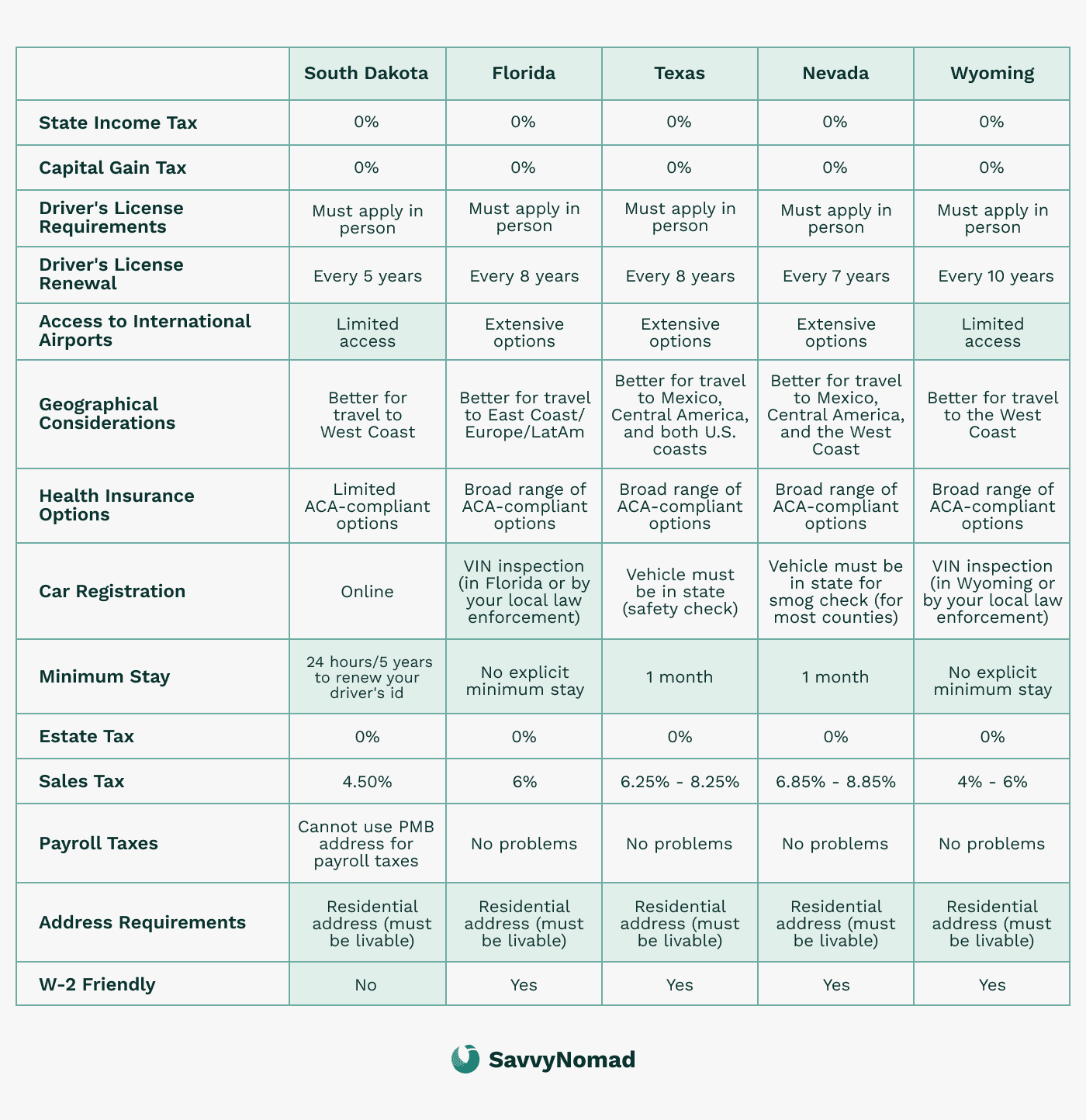Do expats from Michigan still need to pay state taxes?

Understanding state tax obligations is crucial for Michigan expats to avoid unexpected financial burdens and ensure legal compliance. For Michigan residents living abroad, it's essential to determine whether they still need to pay state taxes.
This article will cover key aspects such as residency statuses and their tax implications, the concept of domicile and its impact on tax obligations, and what constitutes Michigan-sourced income.
Additionally, we'll provide steps for changing residency, discuss tax benefits and exemptions for expats, explain the process for filing Michigan state taxes from abroad, and highlight penalties for non-compliance. We'll also answer frequently asked questions to address common concerns.
TLDR:
If Michigan remains your domicile and you haven't established residency elsewhere, you are still considered a Michigan resident for tax purposes and must file state taxes on your worldwide income.
To avoid this, sever all ties with Michigan, such as selling property, transferring your driver's license, registering to vote in your new state, and becoming domiciled in the new state.
Understanding Michigan's tax residency rules
Michigan classifies individuals into three residency statuses for tax purposes: Resident, Nonresident, and Part-Year Resident.
- Resident: You are considered a resident if Michigan is your domicile, meaning it's your permanent home. Residents are taxed on their worldwide income, regardless of where it's earned.
- Nonresident: Nonresidents are those who do not meet the criteria for being residents. They are only taxed on income earned from Michigan sources, such as wages for work performed in the state or income from property located in Michigan.
- Part-Year Resident: If you move to or from Michigan during the tax year, you might be classified as a part-year resident. Part-year residents are taxed on all income received while a resident and only on Michigan-source income received during the portion of the year they were nonresidents.
Domicile and its implications
Your domicile is your permanent home—the place you intend to return to after absences. Domicile plays a crucial role in determining your tax obligations.
Michigan taxes individuals on their worldwide income if they are domiciled in the state, regardless of whether they are physically residing there.
Simply leaving Michigan and establishing residence elsewhere is not sufficient to change your domicile. You must also intend to remain in the new locality and take steps to change your domicile to that new location.
What constitutes Michigan-sourced income?
Understanding what constitutes Michigan-sourced income is essential for nonresidents and part-year residents to accurately determine your tax obligations.
Michigan-sourced income refers to any income derived from activities or assets located within the state.
Here are some key categories to consider:
- Wages and Salaries: Money earned for services performed in Michigan.
- Business Income: Income from business activities conducted in Michigan.
- Real Estate: Rental income from property located in Michigan.
- Capital Gains: Profits from the sale of real estate or tangible property in Michigan.
Why should Michigan expats move domicile to a state with zero state income tax?
State income tax savings
For retirees and high-income individuals from Michigan, moving to states without income taxes such as Florida, Texas, or Nevada can offer significant financial advantages. Without the burden of Michigan state income taxes, you can keep more of your earnings, allowing for greater investment opportunities or an enhanced lifestyle.
Inheritance tax benefits
States like Florida and Texas not only lack a state income tax but also do not impose state estate taxes. This can considerably reduce the tax burden on your estate, ensuring that more wealth is passed on to your heirs. This is especially advantageous for individuals from Michigan with substantial assets who wish to maximize the inheritance for their beneficiaries.
Flexibility and mobility
Relocating your domicile from Michigan to a no-income-tax state enhances your flexibility and mobility, allowing you to travel and live in various locations without worrying about high state tax bills. This is ideal for high-income earners from Michigan with business interests in multiple states or countries and for retirees who desire to spend their later years exploring new places.
Moreover, the absence of state income taxes simplifies your tax filing process. You will only need to file federal taxes, reducing the complexity and potential for errors in your tax returns, making financial management more straightforward.

How to leave Michigan tax residency?
When moving abroad or to another state, changing your Michigan residency status requires deliberate steps to ensure a clear transition.
Here’s a step-by-step guide to help you navigate this process:
1) Establish new residency
Secure a residential address in your new location. This is the first step in establishing your new domicile.
Consider filing a Declaration of Domicile in the new state, solidifying your intent to make it your permanent home. Reference guides may provide additional help for specific states:

2) Transfer IDs and registrations
Update your driver's license and vehicle registration promptly to reflect your new address. This is important for establishing residency in the new state.
3) Register to vote
Register to vote in your new location. Voter registration is a significant factor in demonstrating your commitment to your new domicile.
4) Update documents
Ensure all personal documents such as identification cards, medical records, insurance policies, and financial documents are updated with your new address. This consistency is crucial for proving your new residency status.
5) Notify your employer
Inform your employer about your residency change. This is particularly important if your move affects how your income is taxed, potentially shifting some of it away from being classified as "Michigan-sourced."
6) Notify IRS
Inform the IRS of your address change using Form 8822. Extend this notification to all personal and professional entities.
7) Keep records
Maintain detailed records of all your relocation actions, including receipts, bills, and legal documents. These records can be invaluable, especially if your residency status is questioned.
8) Anticipate an audit
Be audit-ready with proof of your move’s permanence.

Tax benefits and exemptions for Michigan expats
Living abroad as an expat from Michigan comes with various federal tax benefits and exemptions that can help reduce your overall tax burden. Here are some of the key federal tax advantages available:
Foreign Earned Income Exclusion (FEIE)
The FEIE allows U.S. taxpayers living abroad to exclude a certain amount of their foreign-earned income from U.S. federal income tax.
For the tax year 2024, this exclusion amount is up to $126,500.
To qualify, you must pass either:
- Bona Fide Residency Test: You qualify if you are a resident of a foreign country for an uninterrupted period that includes an entire tax year.
- Physical Presence Test: You qualify if you are physically present in a foreign country for at least 330 full days during a 12-month period.
Foreign Tax Credit (FTC)
The FTC helps you avoid double taxation by allowing you to take credit for foreign taxes paid on income that is also subject to U.S. federal tax.
This credit can significantly reduce your U.S. tax liability, especially if you reside in a country with high tax rates.
Foreign Housing Exclusion (FHE)
The FHE allows you to exclude certain housing expenses from your federal taxable income, including rent, utilities (excluding telephone), and other reasonable expenses related to housing abroad. The amount you can exclude is limited to a base amount plus housing expenses exceeding 16% of the FEIE limit.

Filing Michigan state taxes from abroad
Filing Michigan state taxes as an expat involves understanding your residency status, identifying Michigan-sourced income, and following the correct filing procedures.
Here’s a guide to help you navigate this process:
1) Determine your residency status
Your tax obligations depend significantly on whether you are considered a resident, nonresident, or part-year resident of Michigan:
• Residents: Michigan taxes residents on their worldwide income, regardless of where it is earned.
• Nonresidents: Only income earned from Michigan sources is taxable.
• Part-Year Residents: Taxed on all income while a resident and only on Michigan-sourced income during the period they were nonresidents.
2) Identify Michigan-sourced income
If you receive income from Michigan sources, you are required to file a Michigan state tax return.
3) Filing requirements
Depending on your residency status, your filing requirements will vary:
• Residents: Must file a Michigan state tax return if they meet the income threshold that requires a federal return.
• Nonresidents and Part-Year Residents: Must file a state tax return if they have Michigan-sourced income exceeding the Michigan standard deduction or wish to claim a refund of Michigan taxes withheld.
4) Use digital filing options
Michigan provides e-filing services that make the tax filing process easier for expatriates.
These digital platforms guide you through the filing process, ensuring you meet all necessary requirements.
Deadlines and Extensions
• General Deadline: The deadline for filing Michigan state taxes is April 15, which aligns with the federal tax deadline.
• Automatic Extension: If you are living outside the U.S. on April 15, you may receive an automatic two-month extension to file your return and pay any amount due without requesting an extension, extending the deadline to June 15.
• Additional Extension: You can request a further extension, typically extending the deadline to October 15. However, this extension is for filing your return only, not for paying any taxes owed. Interest on any unpaid taxes will accrue from the original April 15 deadline.
Consequences of non-compliance with Michigan state tax laws
Penalties for Non-Compliance
Failure to adhere to Michigan's tax obligations can result in various penalties and interest charges. Understanding these penalties is crucial for Michigan expats to avoid additional financial burdens.
Late filing and payment penalties
Michigan imposes significant penalties for late filing and payment of state taxes. The primary penalties include:
- Late Filing Penalty: If you fail to file your tax return by the due date, Michigan charges a penalty of 5% of the unpaid tax for each month or part of a month the return is late, up to a maximum of 25% of the unpaid tax.
- Late Payment Penalty: If you do not pay your taxes by the due date, a penalty of 0.5% of the unpaid tax is assessed for each month the tax remains unpaid, up to a maximum of 25%.
- Interest Charges: In addition to penalties, interest is charged on any unpaid tax from the return's original due date until the tax is paid in full. The interest rate is adjusted annually and compounds daily.
Underpayment penalties
If you underreport your income or fail to pay the correct amount of tax, you may be subject to an underpayment penalty. This penalty is typically 10% of the understated tax amount. For significant underreporting, additional penalties may apply.
Civil fraud penalty
For more severe cases involving fraudulent actions to evade taxes, Michigan can impose a civil fraud penalty. This penalty is 75% of the unpaid tax due to fraud. The state must prove that the underpayment was intentional and fraudulent.
Criminal penalties
In rare cases, severe cases of tax evasion or fraud can lead to criminal charges. These charges may include filing a false return, failing to file a return, or intentionally failing to pay taxes. Convictions can result in fines and potential imprisonment.
Resolving tax issues
Michigan offers several options to help taxpayers resolve tax issues and avoid severe penalties:
- Voluntary Disclosure Program: Allows taxpayers who have failed to file or underreported their taxes to come forward voluntarily. Participants may avoid criminal prosecution and benefit from reduced penalties.
- Payment Plans: For those unable to pay their tax debt in full, Michigan may offer payment plans, allowing manageable payments over an extended period.
- Offer in Compromise: Under certain conditions, taxpayers demonstrating financial hardship may settle their tax debts for less than the full amount owed.






